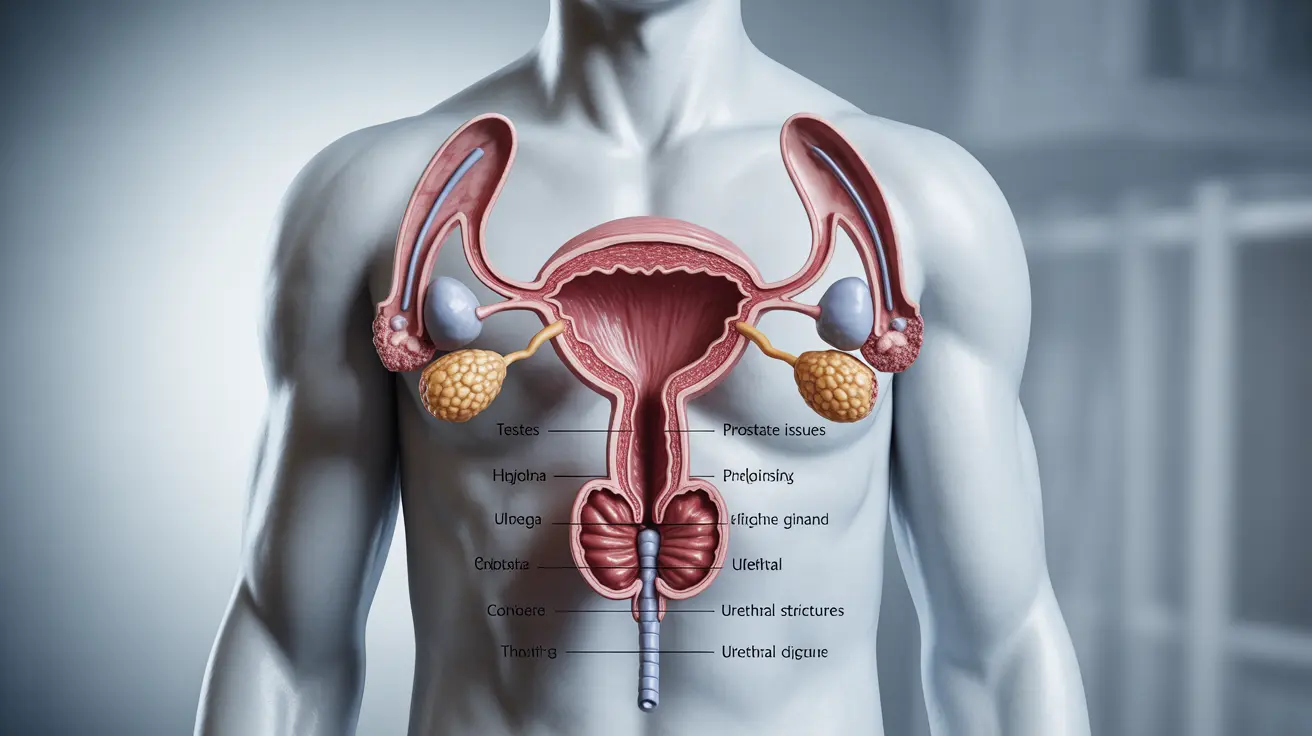Painful ejaculation, also known as dysorgasmia, can be a distressing condition that affects men's sexual health and overall quality of life. While this condition may be uncomfortable to discuss, it's important to understand that it's a legitimate medical concern that often has identifiable causes and effective treatment options.
This comprehensive guide will explore the various aspects of painful ejaculation, including its common causes, diagnosis methods, and available treatments. Understanding these factors can help you make informed decisions about seeking medical care and finding appropriate solutions.
Common Causes of Painful Ejaculation
Several underlying conditions can lead to pain during or after ejaculation:
Prostate-Related Issues
The prostate gland plays a crucial role in male reproductive health, and various conditions affecting it can cause painful ejaculation:
- Prostatitis (inflammation of the prostate)
- Benign prostatic hyperplasia (BPH)
- Prostate surgery recovery
- Prostate cancer or related treatments
Infections and Inflammation
Various infections can contribute to painful ejaculation:
- Urinary tract infections (UTIs)
- Sexually transmitted infections (STIs)
- Epididymitis
- Seminal vesiculitis
Structural Problems
Physical issues in the reproductive or urinary system can cause pain:
- Urethral strictures
- Nerve damage
- Pelvic floor disorders
- Post-surgical complications
Diagnosis and Medical Evaluation
Proper diagnosis of painful ejaculation typically involves several steps:
Physical Examination
Your healthcare provider will conduct a thorough physical exam, including:
- Digital rectal examination
- Examination of the penis and testicles
- Assessment of the pelvic area
- Evaluation of general health indicators
Diagnostic Tests
Various tests may be necessary to determine the underlying cause:
- Urinalysis
- STI screening
- Prostate-specific antigen (PSA) test
- Imaging studies when necessary
Treatment Approaches
Treatment options vary depending on the underlying cause and may include:
Medical Treatments
Several medical interventions may be recommended:
- Antibiotics for infections
- Anti-inflammatory medications
- Alpha-blockers for prostate-related issues
- Pain management medications
Lifestyle Modifications
Certain lifestyle changes can help manage symptoms:
- Pelvic floor exercises
- Stress reduction techniques
- Dietary modifications
- Regular exercise
Frequently Asked Questions
What are the most common causes of painful ejaculation in men?
The most common causes include prostate inflammation (prostatitis), urinary tract infections, sexually transmitted infections, and structural problems in the reproductive system. Prostate-related issues are particularly frequent causes of this condition.
How is painful ejaculation diagnosed and when should I see a doctor?
Diagnosis typically involves a physical examination, medical history review, and various diagnostic tests. You should see a doctor if you experience persistent pain during ejaculation, especially if it's accompanied by other symptoms like fever, discharge, or difficulty urinating.
What treatment options are available for painful ejaculation?
Treatment options include antibiotics for infections, anti-inflammatory medications, alpha-blockers for prostate issues, and pain management medications. The specific treatment depends on the underlying cause identified during diagnosis.
Can medications or lifestyle changes cause or worsen painful ejaculation?
Yes, certain medications, particularly some antidepressants, can affect ejaculation. Lifestyle factors such as excessive alcohol consumption, dehydration, and poor pelvic floor health may also contribute to or worsen symptoms.
Are there any home remedies or exercises that help relieve painful ejaculation?
Some helpful home remedies include pelvic floor exercises, warm baths, stress reduction techniques, and maintaining good hydration. However, these should complement, not replace, professional medical treatment when needed.
Remember, while painful ejaculation can be concerning, it's typically treatable once the underlying cause is identified. Don't hesitate to seek medical attention if you experience this condition, as early intervention often leads to better outcomes.




